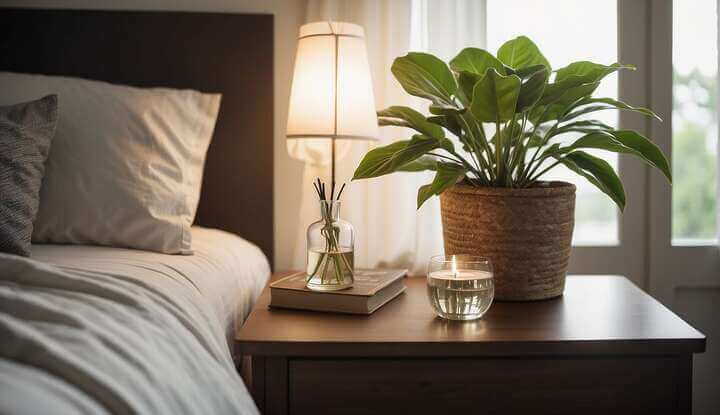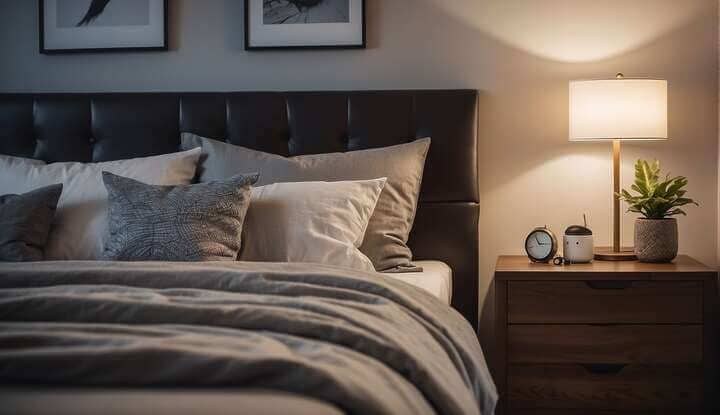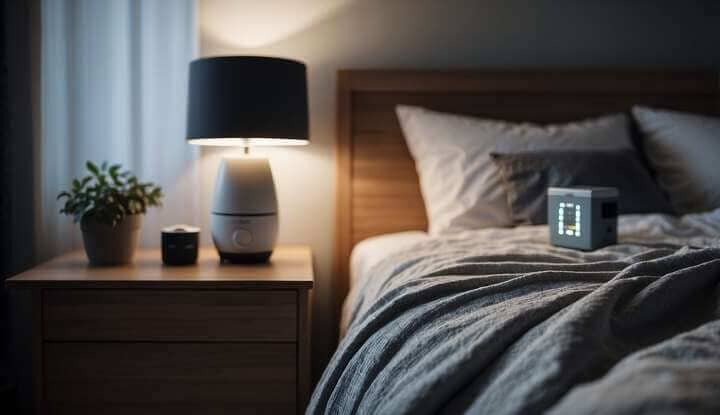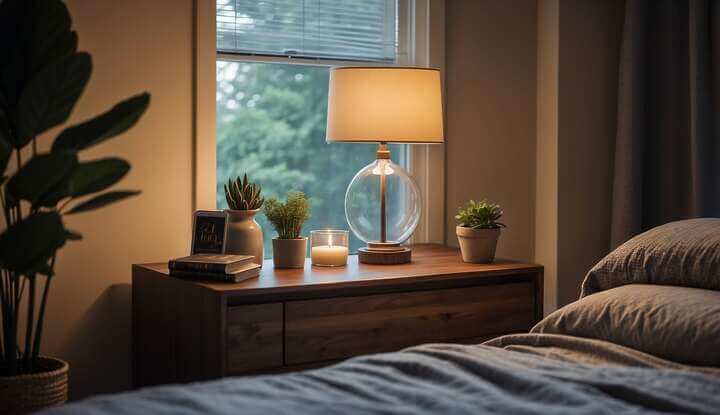Simple Solutions for a Quiet Night: Silence Your Snoring Without Medical Intervention
Snoring affects many people, and it can be more than just an annoyance—it can disrupt your sleep as well as that of your partner.
But before you resign yourself to sleepless nights or consider drastic measures, know that there are simple lifestyle modifications that can have a profound impact on your nightly soundtrack.
While numerous factors contribute to snoring, addressing it doesn’t always require a visit to the doctor; often, it’s the small changes that make the biggest difference.
Addressing snoring naturally starts with understanding why it happens in the first place.
It’s typically caused by a partial blockage in the airways due to relaxed tissues in your throat, which vibrate as air passes over them during sleep.
By making some straightforward adjustments to your daily and nightly routines, such as maintaining a healthy body weight and adjusting your sleeping position, you can reduce the frequency and volume of your snoring.
In addition to these changes, aids like nasal strips or using a humidifier can also contribute to a quieter, more restful sleep.
Key Takeaways
- Snoring can often be reduced by simple lifestyle adjustments.
- Small, consistent changes in daily habits can contribute to significant improvements in snoring.
- Ensuring quality sleep is crucial for overall health and well-being.
What Causes Snoring?

Snoring is more than just a nighttime nuisance; it’s a disruption of sleep caused by a narrowed airway.
Snoring is caused by a partial obstruction of the airway during sleep.
When you hit the sack and drift into deep sleep, your throat muscles relax.
This relaxation can decrease the space in your airways, causing them to narrow. When air flows through these reduced passages, it vibrates the soft palate and the uvula, producing that familiar snoring sound.
Excess weight around the neck area
Carrying extra pounds, especially around the neck, can squeeze the throat’s internal diameter. This creates a greater likelihood of airway obstruction, which can lead to snoring.
Essentially, the added weight presses down on your throat when you lay back, which can reduce the airway size.
- Associated health issues: Obesity, which is linked to snoring, often comes hand-in-hand with other health problems like high blood pressure.
Nasal congestion or allergies
If your nose is blocked — whether because of a seasonal allergy or an issue like a deviated septum — you’re forced to breathe through your mouth when you sleep.
This can increase your chances of snoring due to disrupted airflow through your nasal passages.
- Common nasal conditions: Nasal congestion or anatomical variations like a deviated septum can lead to snoring due to obstructed nasal airways.
Alcohol consumption before bedtime
Alcohol relaxes the muscles in your body — including the tissues in your throat.
This relaxation can further narrow the airway and amplify the intensity of your snoring.
Knocking back a few too close to bedtime is a surefire way to ratchet up the volume on your nighttime concert.
Sleep position
How you lay your head down for the night plays a pivotal role in snoring.
Sleeping on your back allows the base of your tongue and soft palate to collapse to the back wall of the throat, causing that snore-filled symphony. Side-sleeping, on the other hand, may be the ticket to a quieter night.
Benefits of Natural Remedies

When you’re tackling snoring, going the natural route can offer a multitude of advantages that enhance not only your sleep quality but your overall health.
No need for expensive gadgets or medications
You don’t have to drop a ton of cash to get a quieter night’s sleep.
Skipping pricey gadgets and medications means that you can try simple, cost-effective techniques like switching up your sleep position or practicing throat exercises to stop snoring.
Avoid potential side effects of drugs
Turning to natural snoring solutions means you steer clear of the drugs, and by default, you dodge their potential side effects.
Opting for exercises and lifestyle tweaks to maintain a healthy weight helps reduce snoring without introducing any foreign substances into your system.
Address underlying causes of snoring
It’s all about hitting the problem at its core.
You could be overweight or lacking muscle tone, and that’s where snoring loves to take hold.
With natural remedies, like weight loss through diet and exercise, you’re directly targeting what’s causing the ruckus at night.
Improve overall health and well-being
This isn’t just about snoring; it’s a full-scale improvement on your health front.
Regular physical activity and maintaining a healthy weight are about more than just quiet nights. They amp up your well-being, giving you more energy and reducing risks of other health issues.
Maintain a Healthy Weight

Keeping off extra pounds isn’t just good for your heart and your pants size, it’s key for cutting down on snoring.
Excess body weight, particularly around your neck, can press down on your airway when you’re lying down, leading to that all-too-familiar snoring sound.
Excess weight, especially around the neck, can constrict the airway and contribute to snoring
If you’re carrying extra weight around your neck, it’s like squeezing a hose; the air can’t get through easily. This pressure can cause your throat to close during sleep, which sets the stage for snoring.
Practical Tips for Weight Loss
- Eating a Balanced Diet: Fill half your plate with veggies, a quarter with lean protein, and a quarter with whole grains.
- Incorporating Regular Exercise: Aim for at least 150 minutes of moderate aerobic activity or 75 minutes of vigorous activity each week, plus muscle-strengthening exercises twice a week.
- Staying Hydrated: Drink at least 90-125 fluid ounces of water daily, as hydration can help keep your airway clear.
Alcohol Can Relax the Throat Muscles
A couple of drinks might feel relaxing, but alcohol actually relaxes the muscles in your throat too.
This relaxation can cause your throat to collapse a bit when you’re asleep and you end up snoring like a buzzsaw.
Limit or Avoid Alcohol Consumption
It’s best to limit or skip the nightcap.
Alcohol, especially before bed, can lead to more intense snoring. Try winding down with alternatives that won’t relax your throat muscles.
Suggest Alternative Beverages
Instead of reaching for that beer or glass of wine, consider a calming herbal tea or a warm glass of milk.
These can be part of your nighttime routine without increasing your chances of snoring.
Change Your Sleep Position

When it comes to snoring, the position in which you sleep can make a huge difference.
Certain positions, like lying on your back, can exacerbate snoring, while others can help minimize it. Let’s get into the specifics.
Sleeping on your back can cause the base of your tongue and soft palate to collapse into the back of your throat, obstructing airflow
When you sleep on your back, gravity isn’t your friend. It allows the base of your tongue and the soft palate to fall back into your throat.
This obstruction can cause a vibrating sound as you breathe, which is what you hear as snoring.
Changing your sleep position is a straightforward fix to improve airflow and enhance sleep quality.
Recommend sleeping on your side or using positional devices to prevent rolling onto your back
Making the switch to sleeping on your side can be a game-changer. It keeps the tongue and soft palate in a more neutral position, not interfering with airflow.
But if you’re thinking, “I can’t control how I sleep,” I got you.
Try positional devices like a body pillow or a wearable backpack that can help you maintain a side-sleeping position.
Share tips for training yourself to stay in a side-sleeping position
Retraining your body to stick to the side-sleeping position can be challenging but worthwhile.
Here’s a quick tip: Use pillows!
Strategically placed pillows can prevent you from rolling onto your back. Also, consider a firm pillow between your knees – it aligns your hips and makes side-sleeping comfier.
Use Nasal Strips or Humidifiers

If you’re dealing with snoring at night, addressing the condition of your nasal passages could be the ticket to a better sleep.
A blocked nose and dry air are common culprits behind the buzzsaw sounds keeping everyone awake. Let’s get into some simple fixes that can make a big difference.
Nasal congestion or dry air can contribute to snoring
Your nose is more than just a facial feature; it’s a crucial airway.
When your nasal passages are blocked, maybe due to a cold or allergies, or the air in your room is Sahara-level dry, snoring is more likely to crash your slumber party.
- Nasal congestion leads to turbulent airflow, which results in the rattling snores.
- Dry air can irritate your throat and nasal passages, inviting snoring.
Explain how nasal strips can help open the nasal passages and improve airflow
Nasal strips are like little springboards for your nose. Stick one across the bridge, and it acts like an external nasal dilator, lifting the sides of your nose to open up the nasal passages.
- Increased airflow through the nose can help reduce snoring since air can move through smoother and cause less vibration.
- Ease of use: Just place the strip on a clean, dry nose, and you’re good to go. They’re also a drug-free option.
Discuss the benefits of using a humidifier to add moisture to the air, which can prevent dryness and irritation in the throat and nasal passages
Humidifiers are not just for plant lovers; they’re a snorer’s best friend. By adding moisture to the air, a humidifier can prevent the dryness that often leads to irritation in your respiratory system.
- Relief for dry mouth and throat: Keeping the air moist can help because you’re less likely to snore when your throat isn’t as dry or scratchy.
- Healthy nasal passages: A more humid environment can keep the tissues in your nose from drying out, which can help you breathe and sleep more comfortably.
Wrapping Things Up

Recap the importance of lifestyle-based solutions for snoring
Addressing snoring isn’t just for the sake of a quiet night’s sleep—it’s a big deal for your overall wellbeing. Lifestyle changes, like shedding some weight, switching up your sleep position, and exercising the muscles in your throat, can really open up your airway when it’s lights out.
These natural, lifestyle-based solutions are not only non-invasive, but you can start them right now—no special equipment needed.
Encourage readers to experiment with different methods to find what works best for them
Finding the snore-stopping strategy that works for you might take some trial and error. It’s like tweaking a recipe to perfection—you’ve got to adjust the ingredients until you nail it.
Try out the methods mentioned: lose a few pounds if you need to, sleep on your side, work on those throat exercises, and see if a humidifier in your bedroom helps. Your solution is out there, and with a bit of testing, you can find your path to quieter nights.
Remind them that a good night’s sleep is essential for overall health and well-being

Adequate sleep each night isn’t a luxury—it’s a necessity.
Your health and well-being depend on it.
Think about it. When you’re sleeping, your body is busy repairing and rejuvenating for the next day.
- Brain Function: Your brain needs this time to process information and consolidate memories.
- It’s how you learn and make sense of the world.
- Mood: Regarding your emotional state, sleep is key.
- You know you’re more likely to be irritable or stressed out when you’re not getting enough shut-eye.
- Physical Health: Your heart, muscles, they all need that downtime to repair.
- Ever wonder why you feel physically off after a poor night’s sleep? Your body’s telling you it didn’t have enough time to take care of itself.
Some quick tips to keep in mind:
- Routine: Stick to a sleep schedule.
- Your body’s internal clock likes consistency.
- Environment: Keep your bedroom dark, cool, and quiet.
- It’s about setting the stage for rest.
- Diet and Exercise: Watch what you eat and stay active.
- Heavy meals or inactivity can mess with your sleep patterns.

